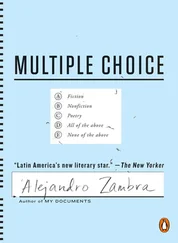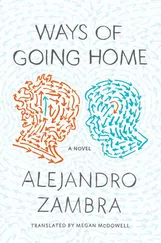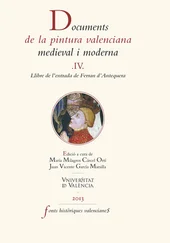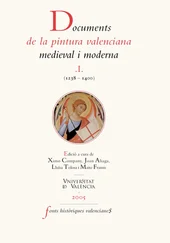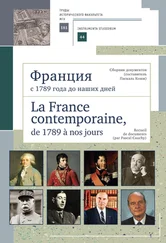“I can’t believe you have a son,” he says.
“Sometimes I can’t believe it either,” answers Paz.
“Another boyfriend” is the first thing the boy says when he sees Martín. He drags his little backpack expressively behind him without looking Martín in the face, but Paz tells him Martín thinks he’s seen Pancho and this gets the boy’s hopes up; he insists they keep looking for the dog. They cover many blocks, looking for all the world like a perfect family. They say good-bye when they reach Paz’s house. Both of them know that they will see each other again, and maybe the boy knows it too.
It’s been over a month since Mississippi’s disappearance, and Martín doesn’t hold out any hope of finding him. He even types up a confused e-mail to Bruno, full of apologies, but he doesn’t dare send it. The cat returns, however, one morning at dawn, barely able to push through his little door; he’s covered in wounds and has an enormous ball of pus on his back. The vet is pessimistic, but he does an emergency operation and prescribes some antibiotics that Martín has to give Mississippi daily. He has to feed the cat baby food and clean his wounds every eight hours. The poor cat is so bad off, he doesn’t have the strength to move, or to meow.
Martín focuses on Mississippi’s health. Now he loves the cat, takes care of him for real. He forgets to call Paz for a few days. One morning, she is finally the one to call him, and she’s happy when she hears the good news. Half an hour later they are sitting beside the cat, petting him, commiserating with him.
“You told me you lived alone, but this seems like a family’s house.” She throws the sentence at him suddenly, looking at the photo of Consuelo. Martín gets nervous and delays his answer. Finally he tells her, downcast and murmuring, as if it were painful to remember: “We separated some months ago, maybe a year ago. My wife and our daughter went to live in an apartment, and I stayed here with the cat.”
“Your wife is beautiful,” says Paz, looking at the photo on the wall.
“But she’s not my wife anymore,” answers Martín.
“But she’s beautiful,” repeats Paz. “And you never told me you had a daughter.”
“We just met, we can’t say words like never and always yet,” says Martín. “And I don’t like to talk about her,” he adds. “It makes me sad. I’m still not over the separation. The worst part is that Consuelo doesn’t let me see the girl, she wants more money.”
Paz looks at him anxiously, her mouth half-open. He must be feeling the adrenaline that sustains the liar, but he’s getting distracted by those small, slightly separated teeth, the aquiline nose, those thin but well-formed legs that seem, to him, perfect.
“You had your daughter very young,” Paz says.
“Not really,” he replies. “Or maybe so. Maybe I was too young.” Now he is completely wrapped up in the lie.
“I was a mom at sixteen, and I almost had an abortion,” says Paz, maybe to balance out Martín’s confessions.
“Why didn’t you?” Martín asks. It’s a stupid, offensive question, but she’s unfazed.
“Because abortion is illegal in Chile,” she says very seriously, but then she laughs, and her eyes shine. “That year,” she goes on, “my two best friends got pregnant. I was going to get an abortion at the same place they did, but at the last minute I changed my mind and decided to have the baby.”
They have sex on the armchair, and at first it seems like a good lay, but then he comes quickly, and apologizes.
“Don’t worry,” she answers. “You’re better than most boys my age.” Martín thinks about that word, boys , which he would never use but which, coming from her, sounds so appropriate, so natural. She has almost no freckles on her face or arms, but her body is covered in them. Her back looks like it was spattered with red ink. He likes it.
They start seeing each other every day, and they keep looking for Pancho. The possibility of finding him is by now remote, but Paz doesn’t lose hope. After each search they go back to the house and tend to Mississippi together. The cat’s wounds are healing slowly but favorably, and, on the spot on his back where the doctor shaved his fur, they can already see a finer, lighter fur growing in. The romance also advances, at an accelerated speed. Sometimes he likes this acceleration, he needs it. But he also wants it all to end: he wants to be forced to tell the truth, and for it all to go to shit.
One day Paz realizes that Martín has taken the photo of Consuelo down. She asks him to hang it up again. He asks her why.
“I don’t want us to get confused,” she says. He doesn’t understand very well, but he hangs the photo up again. “If it bothers you to screw in the house where you slept with and screwed your wife,” Paz tells him, “I’d understand.” He shakes his head emphatically and tells her that for some time now — that’s the expression he uses, “for some time now”—he hasn’t thought about his wife.
“Really, sorry to insist,” she says, “but if it bothers you to fuck here, you have to tell me.”
“But she and I were really almost never having sex anymore,” answers Martín, and they fall silent until she asks him if he ever had sex with his wife on the table in the living room. He gives her a horny smile and says that he didn’t. The game continues, vertiginous and fun. She asks if his wife ever dipped his dick in condensed milk before sucking it, or if perhaps, by chance, his wife liked him to stick three fingers in her ass, or if there’d been a time when she asked him to come on her face, on her tits, on her ass, in her hair.
One of those mornings, Paz shows up with a rose bush and a bougainvillea. He gets a shovel and together they construct a minimal garden in the empty plot by the house’s entrance. He digs clumsily, so Paz takes the shovel away from him, and, in a matter of minutes, the job is done.
“Sorry,” Martín tells her. “I know the guy is supposed to do the hard part.”
“No worries,” she answers, and she adds, cheerfully: “I was born under democracy.” Later, apropos of nothing, maybe as a way of anticipating his confession, Martín launches into a monologue about the past, in which brushstrokes of the truth are mixed with some obligatory lies, as he searches for a way of being honest, or at least less dishonest. He talks about pain, about the difficulty of building long-lasting, simple ties with people. “I’m addicted to the drug of solitude,” he tells her, sounding like a slogan on a plaque. She listens to him attentively, compassionately, and she nods several times in affirmation, but after a pause in which she adjusts her hair, settles into the armchair, and takes off her tennis shoes, she says it again, mischievously: “I was born under democracy.” And at lunch, when she sees him cutting his pieces of chicken with a knife and fork, she says she’d rather eat with her hands because she was “born under democracy.” The phrase works for everything, especially in bed: when he wants to do it without a condom, when he asks her not to yell so loud or to be careful about walking around the living room naked, and when she moves so savagely and eagerly on top that Martín can’t hide the pain in his penis — to all of these things, she responds that she was born under democracy, or she simply says, shrugging: “Democracy!”
Time goes by with happy indolence. There are hours, maybe entire days, when Martín manages to forget who he really is. He forgets he is pretending, that he’s lying, that he’s guilty. On two occasions, however, he almost lets the truth slip out. But the truth is long. Telling the truth would require many words. And there are only two weeks left. No! One week.
Читать дальше

